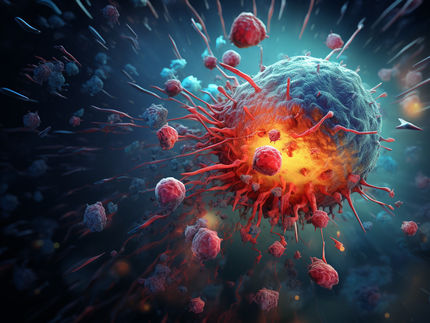Takeda and Galaxy Biotech Sign License Agreement for Galaxy's Investigational Antibodies for the Treatment of Cancer
Takeda Pharmaceutical Company Limited and Galaxy Biotech, LLC announced that both parties have entered into an agreement for the development and marketing of HuL2G7, a humanized antiHepatocyte Growth Factor (HGF) monoclonal antibody created by Galaxy.
Under the agreement, Takeda has received exclusive worldwide rights to develop, manufacture and market the HuL2G7 antibody. Takeda will pay Galaxy an upfront licensing fee of US $2 million; milestone payments on the achievement of certain preclinical, clinical and regulatory milestones; and royalties on product sales. Takeda will also fund further research activities at Galaxy on the humanized antiHGF antibody and successor agents for a period of four years.
HuL2G7 is a recombinant, humanized antibody that blocks the activity of human HGF, a growth factor believed to mediate proliferation, metastasis, antiapoptosis and neoangiogenesis of many types of tumors. In a recent study published in the journal Clinical Cancer Research, Galaxy investigators and collaborators at the Kennedy Krieger Institute in Baltimore, Maryland, showed that in animal models, treatment with HuL2G7 induced substantial tumor regression and greatly prolonged survival.
"We are extremely pleased to enter this alliance with Takeda, one of the 20 largest pharmaceutical companies," said Cary Queen, Ph.D., President of Galaxy. "We believe their strong commitment and capabilities in research, development and marketing, including a major presence in the U.S., will enable rapid development of the humanized antiHGF antibody, which has the potential to be an important new treatment for major types of cancer."
"This alliance with Galaxy surely represents our initiative to enhance the R&D pipeline in oncology, including antibody drug technology, which is one of our core therapeutic areas," said Yasuchika Hasegawa, President of Takeda. "We expect that HuL2G7 will be successfully developed to contribute to the cancer treatment field where there still remain unmet needs of the patient and physicians population."
Other news from the department business & finance
Most read news
More news from our other portals
See the theme worlds for related content
Topic world Antibodies
Antibodies are specialized molecules of our immune system that can specifically recognize and neutralize pathogens or foreign substances. Antibody research in biotech and pharma has recognized this natural defense potential and is working intensively to make it therapeutically useful. From monoclonal antibodies used against cancer or autoimmune diseases to antibody-drug conjugates that specifically transport drugs to disease cells - the possibilities are enormous

Topic world Antibodies
Antibodies are specialized molecules of our immune system that can specifically recognize and neutralize pathogens or foreign substances. Antibody research in biotech and pharma has recognized this natural defense potential and is working intensively to make it therapeutically useful. From monoclonal antibodies used against cancer or autoimmune diseases to antibody-drug conjugates that specifically transport drugs to disease cells - the possibilities are enormous





















































